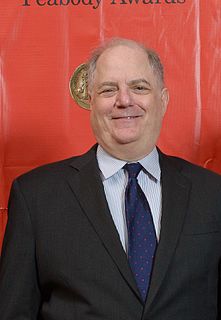A Quote by Michael Ball
Related Quotes
Every opera, because every opera is a unique slice of a particular perspective, historical perspective and psychological perspective if not musical style, and so forth, they all present different challenges. Some can be musically very challenging, some can be psychologically more challenging. There is always something that requires a pretty specific amount of energy and attention.
I've always loved opera; it never occurred to me that I would write a proper libretto. One of my closest friends is a composer, Paul Moravec, and a few years ago, Paul and I were at lunch, and I said to him, "you really have to write an opera." So, he says very casually to me, "I'll do it if you write the libretto." Well, little did I know that the within a couple of years we would end up getting a commission from the Santa Fe Opera to write an opera together, "The Letter," which turned out to be the most successful commissioned opera in the history of the Santa Fe Opera.
To me, the fun part of both jobs is to always try to push the discussion and debate forward in some way. The most fun part of being a theater critic for the Times was always to try and champion something that maybe other people didn't like, or that was produced under obscure circumstances or had to fight for its life. And I would say in the column what I try to do is in some ways related in that I'm trying to fight for a point of view. I'm not trying to be a kingmaker in either job, and don't want to be, and shouldn't be.
Opera was an enormous part of my childhood. My parents were both opera buffs, and they met in the box seat of an opera performance. And I also was a boy soprano, so before puberty hit, I was onstage playing a wide variety of orphans and urchins in all sorts of operas, and the sheer melodrama of their stories was just always appealing to me.
They had battled and bloodied one another, they had kept secrets, broken hearts, lied, betrayed, exiled, they had walked away, said goodbye and sworn it was forever, and somehow, every time, they had mended, they had forgiven, they had survived. Some mistakes could never be fixed - some, but not all. Some people can't be driven away, no matter how hard you try. Some friendships won't break.



































